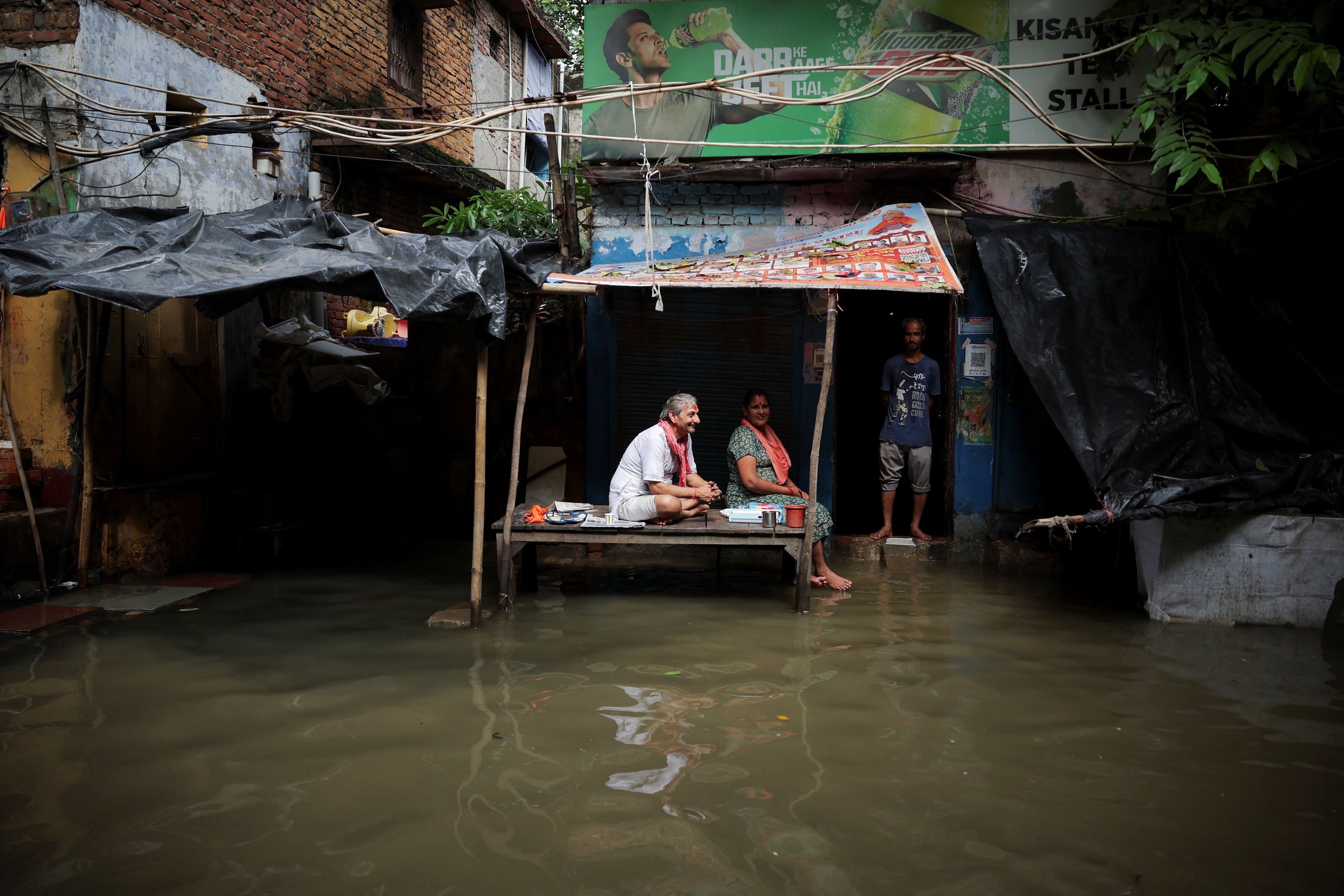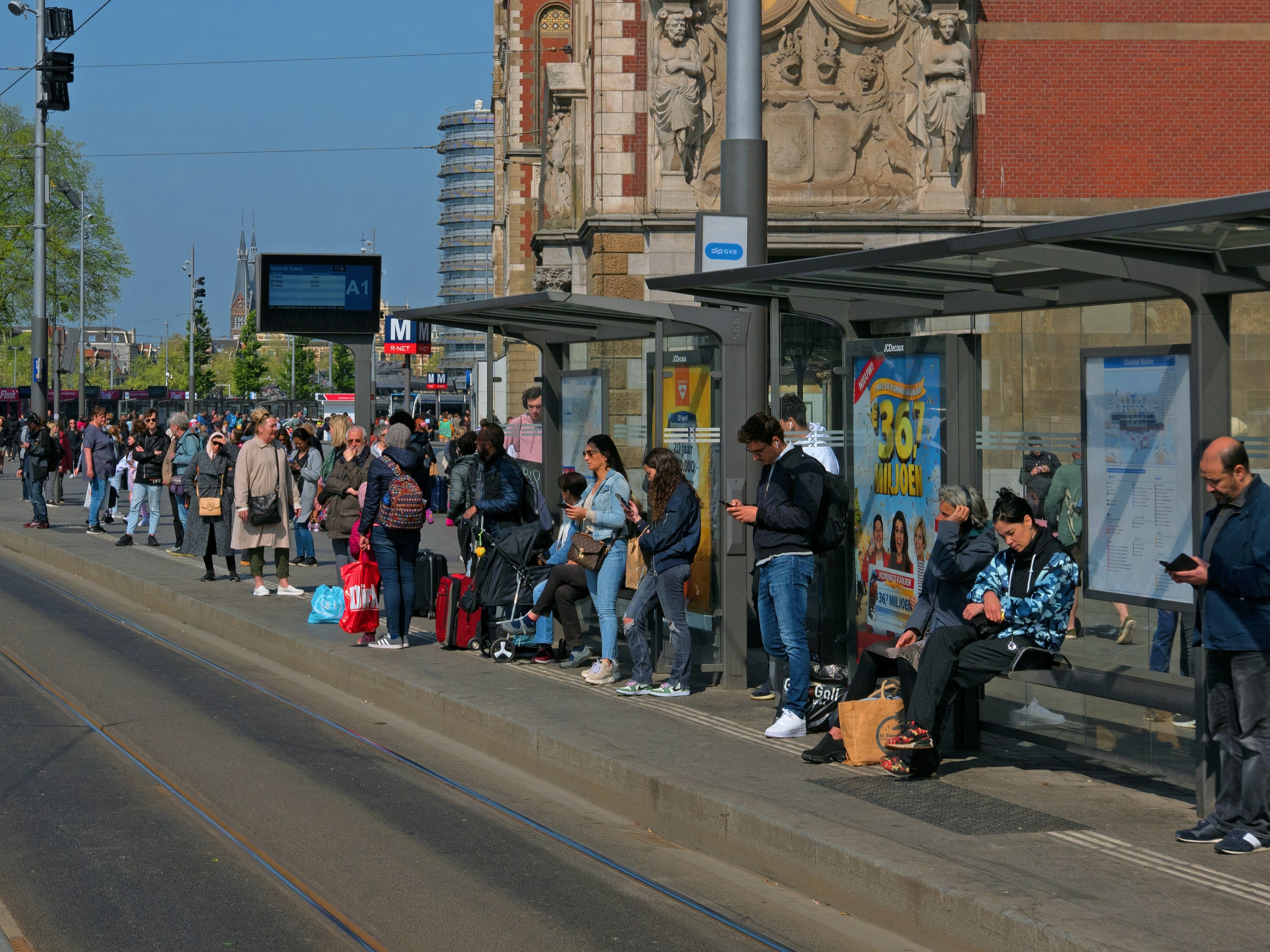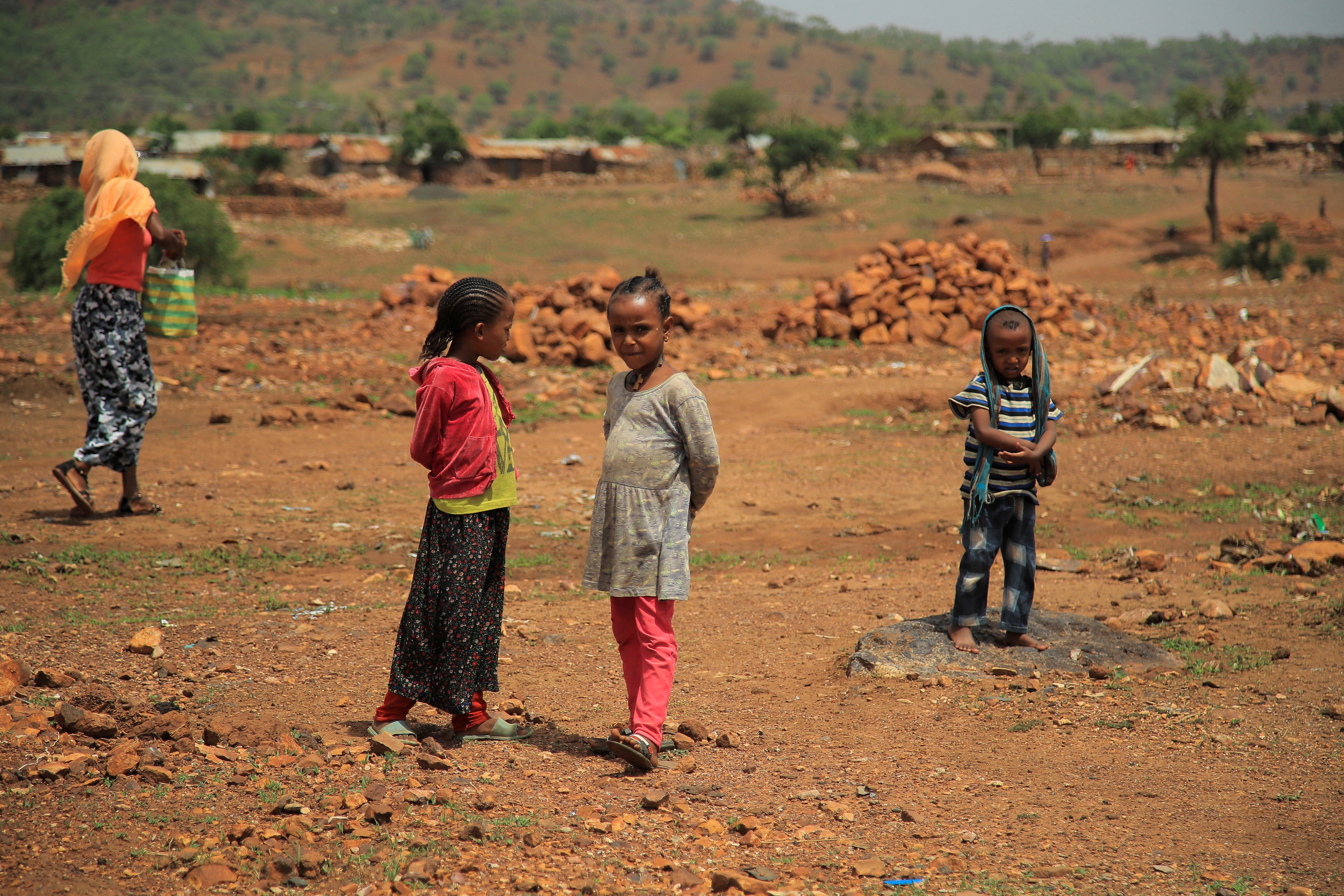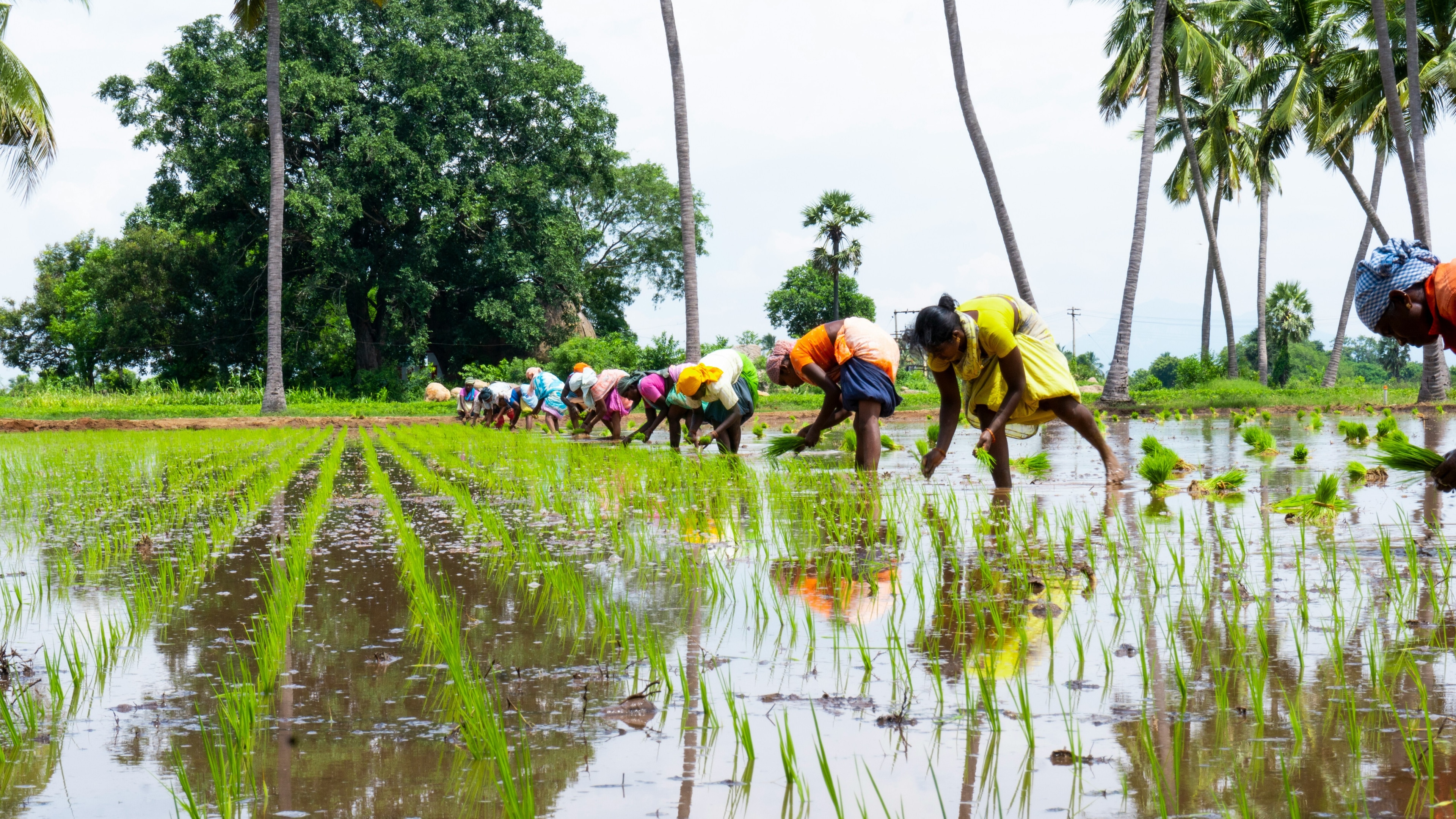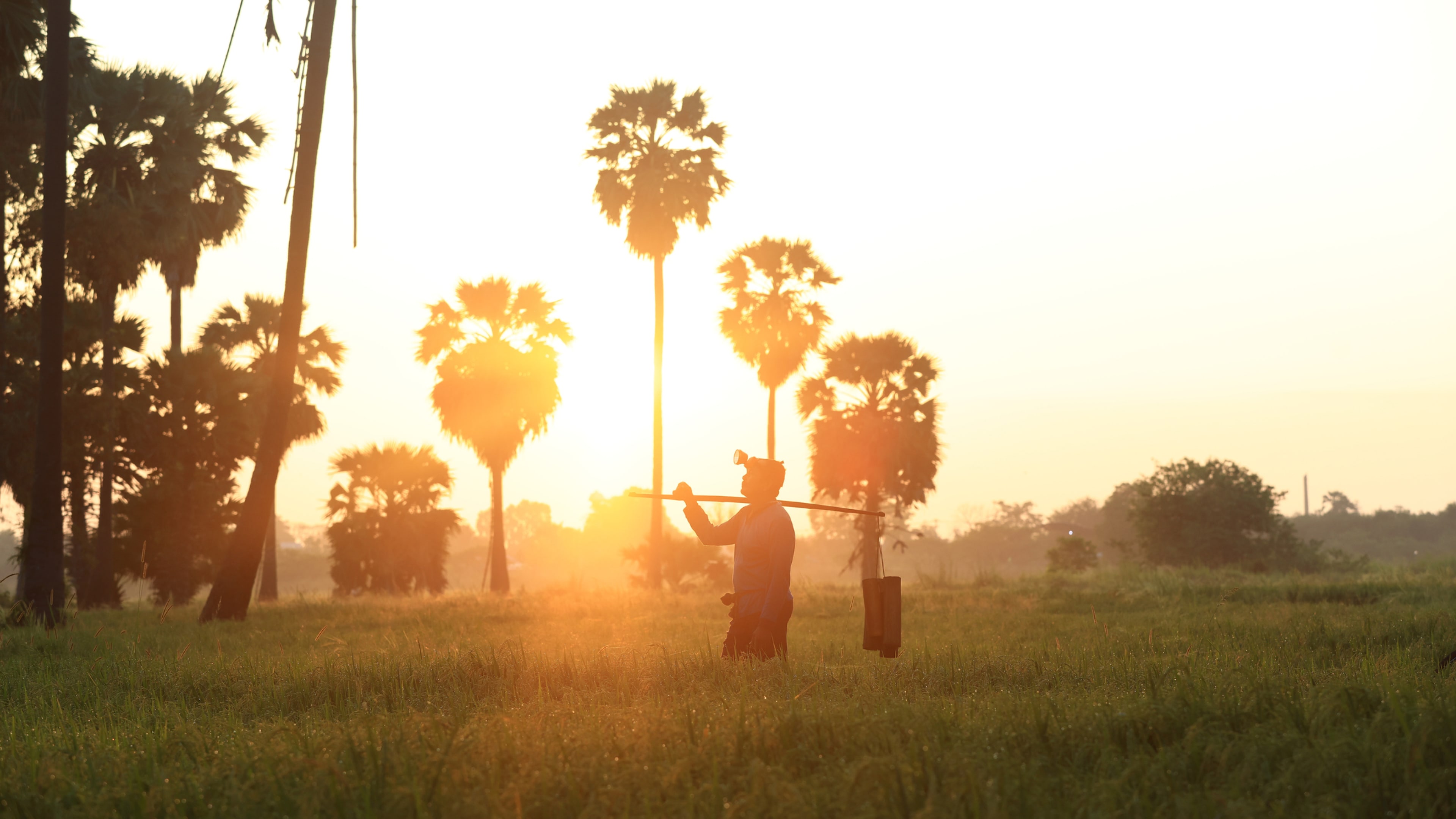1.5 billion people live in fragile societies – we all have a responsibility to help them

Image: REUTERS/James Akena
It is estimated that more than 1.5 billion people live in an environment of continuous fragility, violence or conflict. The World Humanitarian Summit is taking place this week in Istanbul, bringing together approximately 5,000 representatives of government, business, civil society and communities to better prepare for and respond to crises and conflict. The summit is not only a conference for humanitarians, it is a conference for humanity, in which all actors – including business – have a stake.
When business steps up
In 2002, internal armed conflict in Côte D’Ivoire divided the country into two parts – one part run by the central government and the other by the armed opposition. The country’s water treatment and distribution system was run by a private company, which found itself unable to ensure proper maintenance of the water system in areas that had come under the control of the armed opposition.
Had the company followed pure business logic, it would have most likely suspended operations. This would have had disastrous consequences for the people of Côte D’Ivoire – a lack of clean drinking water would have increased the risk of disease and compromised the ability of hospitals to provide adequate healthcare, among other problems.
Instead, through a collaboration between the water company, the International Committee of the Red Cross (ICRC), the relevant government ministry and a donor, an agreement was reached that allowed the company to continue providing water services in all areas. Through this constructive multistakeholder engagement, a serious humanitarian problem was averted.
We need everyone at the table
This example highlights the crucial importance of business continuity in crisis and conflict situations. The ICRC has seen stability and livelihoods undermined by the withdrawal of businesses from conflict zones such as Southern Sudan, Iraq and Syria. Business continuity is critical because it can facilitate the undisrupted provision of essential services. It can also generate the conditions for resilience – through investment, stimulation of economic activity, job creation and payment of taxes. Finally, it helps strengthen and grow local businesses, both directly through partnerships between large and small-scale businesses, and indirectly through flow-on effects of continued economic activity.
In fragile contexts, the private sector also poses a serious risk of amplifying harm, especially if business actors do not adequately understand the complexity of the conditions in which they operate. Humanitarian actors can help guide businesses to better comprehend the heightened risks of causing harm in fragile environments. Yet, despite the undeniable fact that businesses are important stakeholders in fragile and conflict-affected environments, the private sector is often left out of high-level humanitarian discussions.
The World Humanitarian Summit presents a key opportunity to draw the private sector into discussions on humanitarian challenges in a more effective and comprehensive way than has been done to date. We must harness the immense potential for public-private partnerships to build resilience in the world’s most complex and fragile environments. The private sector has a specific set of skills, resources and networks that can be highly useful if channeled responsibly into the development of humanitarian solutions. Of course, corporate involvement in humanitarian action will not be appropriate in all cases. The risks and opportunities of private investment or partnership must always be thoroughly assessed on a case-by-case basis. The World Economic Forum’s Global Agenda Council on Fragility, Violence and Conflict has recently published a report, which features case studies of companies operating in challenging environments. We need to learn from these experiences – the good and the bad – to improve responsible investment moving forward.

What the humanitarian world can learn from business
Today, there is a gap of $15 billion between humanitarian needs and the funding received to support humanitarian action. Humanitarian financing is misaligned with the stark reality of protracted conflicts and crises – humanitarian action is traditionally defined as “emergency relief” and therefore financed on a short-term basis, yet many of the toughest humanitarian situations require sustained operations over multiple decades.
For example, the ICRC has been active in Afghanistan for 28 years, South Sudan for 36 years and Gaza for 67 years. There is therefore a clear need for more flexible and innovative financing mechanisms. The private sector has vast expertise and resources that can be channeled towards new ways of financing humanitarian relief.
The ICRC is currently developing a Humanitarian Impact Bond, which will mobilize both private and public capital to fund the ICRC’s work developing prostheses and other services for people who have been injured by conflict. The more the ICRC can expand its physical rehabilitation programmes, the more victims of conflict and violence will be able to re-engage actively in their societies and economies. Such innovative financing mechanisms that integrate the private sector have the potential to vastly increase the scale of support to humanitarian projects worldwide.
The creative capacity of the private sector should be harnessed to develop new and more effective ways to deliver humanitarian solutions. One platform that enables this is the Global Partnerships for Humanitarian Impact and Innovation (GPHI2), which brings together the corporate sector, the ICRC and other actors to tackle issues linked to health in fragile environments. ICRC health specialists are also partnering with companies such as Philips, Novartis (members of the ICRC’s Corporate Support Group) and Novo Nordisk to develop new solutions to strengthen mother and child healthcare and address the burden of non-communicable diseases in conflict zones.
There are also significant untapped opportunities for multinational companies to support local entrepreneurs by sharing knowledge, resources and skills that help them grow their businesses. The multiplier effects of increased business activity can greatly benefit all actors in society by promoting stability and mitigating fragility. This is not just a matter of humanitarian objectives – instability and violence are bad for business. There is a clear business case for building the resilience and capacity of local communities, businesses and institutions, because a peaceful, educated and productive population will stimulate economic growth in the long term.
The humanitarian ecosystem is diverse – not only is there a variety of traditional humanitarian actors, but the system should also embrace an increasing diversity of private sector actors. Businesses operating in fragile or conflict-affected environments bear a responsibility to, at the very minimum, do no harm and avoid fuelling conflict or reinforcing fragility. Through our operations, the ICRC sees how strengthening economic security and building sustainable livelihoods in fragile and conflict-affected settings is crucial to building peace and resilience. There is a clear need for businesses to go beyond neutral impacts and positively strengthen their surroundings. The World Humanitarian Summit presents a prime opportunity for the private sector to engage with humanitarian actors and develop innovative solutions to the immense humanitarian challenges that face our world today.
This is part of a series of articles linked to the 2016 World Humanitarian Summit, including:
Don't miss any update on this topic
Create a free account and access your personalized content collection with our latest publications and analyses.
License and Republishing
World Economic Forum articles may be republished in accordance with the Creative Commons Attribution-NonCommercial-NoDerivatives 4.0 International Public License, and in accordance with our Terms of Use.
The views expressed in this article are those of the author alone and not the World Economic Forum.
Stay up to date:
Drivers of War
Forum Stories newsletter
Bringing you weekly curated insights and analysis on the global issues that matter.
More on Resilience, Peace and SecuritySee all
Shoko Noda and Kamal Kishore
October 9, 2025

